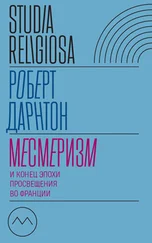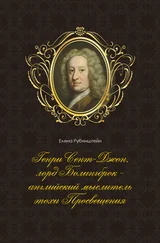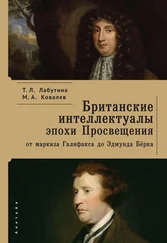Camblee Thomas. Poland // David Perkins (ed.), English Romantic Writern. New York: Harcourt, Braceà World, 1967. P. 603.
Lortholary. P. 263–264.
Vigée-Lebrun Elizabeth. The Memoirs of Elizabeth Vigée-Le Brun (Bloomington: Indiana Univ. Press, 1989). P. 161, 189; Mohrenschildt Dmitri von. Russia in the Intellectual Life of Eighteenth-Century France. New York: Columbia Univ. Press, 1936. P. 25–26.
Vigée-Le Brun. P. 208–366; Fabre. P. 552.
Cobberr William. Letters to the Right Honourable Lord Hawksbury, 2 nded. London: Cobbett and Morgan, 1802. P. 82.
Kennan George. Memoirs 1925–1950. New york: Pantheon Books, 1967. P. 29–30.
Cobbett. P. 83.
Kennan. P. 26.
Iorga Nicolae. Les Voyageurs Française dans l’Orient Europen. Paris: Boivin, 1928. P. 105.
Peyssonnel Charles de. Observation historiques et géographiques, sur les peuples barbares qui ont habit les bords du Danube à du Pont Euxin. Paris: Chez N.M.Tillard, 1765. P. 1–2.
Ibid. P. 4–7.
Ibid. P. 30.
Ibid. P. 39.
Ibid. P. 50–51.
Ibid. P. 194–195.
Vaugondy Rober de. Atlas Universel. Vol. 1 Paris, 1757. Maps 4, 12.
Anville Jean-Baptiste d’. A Complete Body of Ancient Geography. London: Robert Sayer, 1771. Maps 1, 3.
Hartog Franois. The Mirror of Herodotus: The Representation of the Other in the Writing of History. Trans. Janet Lloyd. Berkeley: Univ. of California Press, 1988. P. 30.
Lortholary Albert. Le Mirage russe en France au XVIIIe siècle. Paris: Boivin, 1951. P. 297, note 87; Gyergyai Albert. Un correspondant hongrois de Voltaire: le comte Fekete de Galanta // Studies on Voltaire and the Eighteenth Century. Vol. 25. Ed.Theodore Besterman. Geneva: Institut et Musée Voltaire, 1963. P. 789.
Peyssonnel. P. vii — ix, xv — xvi.
Ibid. P. xxxvi — xl.
Ibid. P. 9–10, 71.
Levesque Pierre-Charles. Historié de Russie. Vol. I. Hambourg; Brunswick: Chez Pierre-François Fauche, 1800. P. viii — ix.
Rulhière Claude Carloman de. Revolutions de Pologne. Vol. I. Ed. Christien Ostrowski. Paris: Librairie de Firmin Didot Frères, 1862. P. 1–2; Levesque. I. P. 1–6.
Levesque. I. P. 55–56.
Mohrenschildt, Dmitri von. Russia in the Intellectual Life of Eighteenth-Century France. New York: Columbia Univ. Press, 1936. P.227.
Sacy Claude-Louis de. Histoire générale de Hongrie: Depuis la première invasion des Huns, jusqu’à nos jours. Vol. I. Yverdon, 1780. P. vii, xxxi.
Iorga. P. 104–108; Darnton Robert. Mesmerism and the End of the Enlightenment in France. Cambridge, Mass.; Harvard Univ. Press, 1968. P. 98–100; Carra Jean-Louis. Historié de la Moldavie et de la Valachie. Jassy: Socit Typographique des Deux-Points, 1777. P. xvi — xvii, 220.
Hauterive Alexandre-Maurice Blanc de Lanautte, comte d’. Mémoire sut l’état ancien et actuel de la Moldavie: Présenté S.A.S le prince Alexandre Ypsilanti, Hospodar régnant, en 1787, par le comte d’Hauterive. Bucharest: L’Institut d’arts graphiques Carol Gobi, 1902. P. 20–22.
Rousseau Jean-Jacques. Considerations sure le gouvernement de Pologne // Discours sur l’économie politique, Projet de constitution pour la Corse, Considerations sure le gouvernement de Pologne. Ed. Barabara de Negroni. Paris: Flammarion, 1990. P. 170–17.
Hauterive. Mémoire. P. 42–44; Hauterive Alexandre-Maurice Blanc de Lanautte, comte d’ La Moldavie en 1758: faisant suite au journal d’un voyage de Constantinople à Jassy // Mémoire sut l’état ancien et actuel de la Moldavie: Présenté S.A.S le prince Alexandre Ypsilanti, Hospodar régnant, en 1787, par le comte d’Hauterive. Bucharest: L’Institut d’arts graphiques Carol Gubl, 1902. P. 357–358.
Hauterive. Mémoire. P. 236.
Ibid. P. 176; Hauterive. La Moldavie. P. 359.
Hauterive. La Moldavie. P. 331–332.
Hauterive. Mémoire. P. 252, 258.
Ibid. P. 264–266.
Ibid. P. 266–270.
Ibid. P. 78.
Ségur Louis-Philippe, comte de. Mémoires, souvenirs, et anecdotes, par le comte de Ségur. Vol. I // Bibliothèque des mémoires: relatif à l’histoire de France: pendant le 18e siècle. Vol. XIX. Ed. M.Fs. Barrière. Paris: Librairie de Firmin Didot Frères, 1859. P. 329–330.
Gibbon Edward. The Decline and Fall of the Roman Empire. New York: Modern Library, n.d. I. P. 6.
Gibbon. I. P. 211–214.
Ibid., I. P. 214.
Voltaire. Essay sur les moeurs // Oeuvres complètes de Voltaire. Vol. III. Paris: Chez Furne, 1835. P. 583.
Gibbon. II. P. 245–247, 254, 263.
Ibid., II. P. 591.
Ibid., II. P. 591–594.
Ibid., III. P. 61.
Ibid., III. P. 316.
Ibid., III. P. 317–318.
Ibid., III. P. 318–319, note 8.
Ibid., III. P. 321–322.
Ibid., III. P. 322–323.
Ibid., III. P. 322–323, note 22; Gulya Janos. Some Eighteenth Century Antecedents of Nineteenth Century Linguistics: The Discovery of Finno-Ugrian // Studies in the History of Linguistics: Traditions and Paradigms. Ed. Dell Hymes. Bloomington: Indiana Univ. Press, 1974. P. 260–263.
Gibbon. III. P. 324–326, 329.
Ibid., III. P. 330–331, note 45.
Ibid., III. P. 332–333, 335, note 58, 337.
Ibid., III. P. 343.
Ibid., III. P. 343–344; Spadafora David. The Idea of Progress in Eighteenth-Century Britain. New Haven, Conn.: Yale Univ. Press, 1990. P. 223–224; Porter Roy. Edward Gibbon: Making History. London: Weidenfeld and Nicholson, 1988. Chapter 6. «Civilization, Barbarism, and Progress». P. 135–157.
Читать дальше
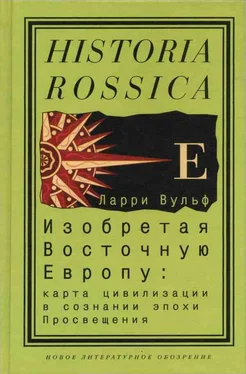
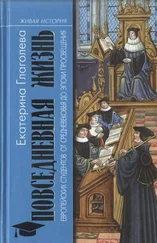

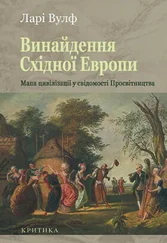
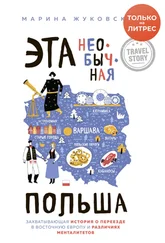
![Татьяна Лабутина - Британские интеллектуалы эпохи Просвещения [от маркиза Галифакса до Эдмунда Берка]](/books/394010/tatyana-labutina-britanskie-intellektualy-epohi-pr-thumb.webp)
![Жорж Вигарелло - История тела Том 1 [От Ренессанса до эпохи Просвещения]](/books/413403/zhorzh-vigarello-istoriya-tela-tom-1-ot-renessansa-d-thumb.webp)
![Филипп Арьес - История частной жизни Том 3 [От Ренессанса до эпохи Просвещения]](/books/414485/filipp-ares-istoriya-chastnoj-zhizni-tom-3-ot-renes-thumb.webp)

